Body Image and Weight Loss – Catalyst for Body Dysmorphic Disorder
In the Victorian Era and in the 1950s, full-figured, curvaceous women like Marilyn Monroe, set the standard for beauty for woman. Fast forward a couple decades, and this image was altered dramatically. There was an increased emphasis on thinness and weight loss and added pressure to reveal a “toned” look. Nowadays, body image and weight loss has once again taken another turn and it is a “to each is own” type of thing.
What is Body Image?
Your body image is what you think and how you feel when you look in the mirror or when you picture yourself in your mind. How you feel about your body image and weight loss efforts is a mindset. It’s what you construe about your body itself, such as your height and weight; how you feel within your own skin. Body image does not just mean that you feel comfortable in your own body. It goes beyond that.
Body image also includes how you behave because of your thoughts and feelings. You may have a positive or negative body image. Most importantly, a healthy body image is not always related to your weight or size.
Why is a healthy body image important?
Women with a poor body image are more likely to have good physical and mental health. Girls and women with negative thoughts and feelings about their bodies are more likely to develop certain mental health conditions, such as eating disorders and depression. In fact, modern researchers think that dissatisfaction with body image is the main reason more women than men have depression.
Negative Body Image
Body image is very complex and begins at a young age. According to a 2020 research review, 40 to 50 percent of first and second graders already don’t like some aspect of their body. Studies prove that: 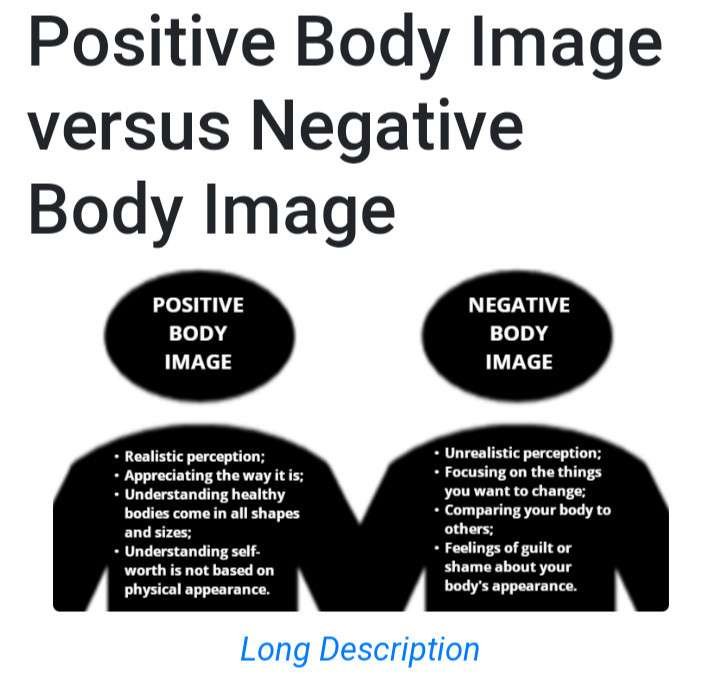
- A negative body image leads to low self-esteem.
- Low self-esteem affects many areas of your life.
- You may not want to be around other people or
- May obsess constantly about what to eat
- Some students obsess on exercise.
Girls are more prone to have a negative body image. In fact, many women in the United States feel pressure to measure up to unrealistic social and cultural beauty norms. This leads to a negative body image. But, have no worries. You can take steps to develop a healthier body image.
Demographics Affect Body Image
Caucasian girls and younger women are slightly more likely to have a negative body image than African American or Hispanic girls and young women. However, cultural beauty ideas change over time. For example, it can be difficult to correctly measure body image among women from different backgrounds. In addition, children of parents who diet or who have a negative body image are also more likely to develop unhealthy thoughts about their own bodies. (Photoshopping Real Women into Cover Models video) https://youtu.be/zRlpIkH3b5I
Why are Women Focused on Body Image?
In the United States, girls and women are taught about beauty from the first day they are born. Also, throughout much of their childhood and into adulthood they are concerned with appearance. Young girls and teens are more likely to be praised for HOW they look than for their thoughts or actions. 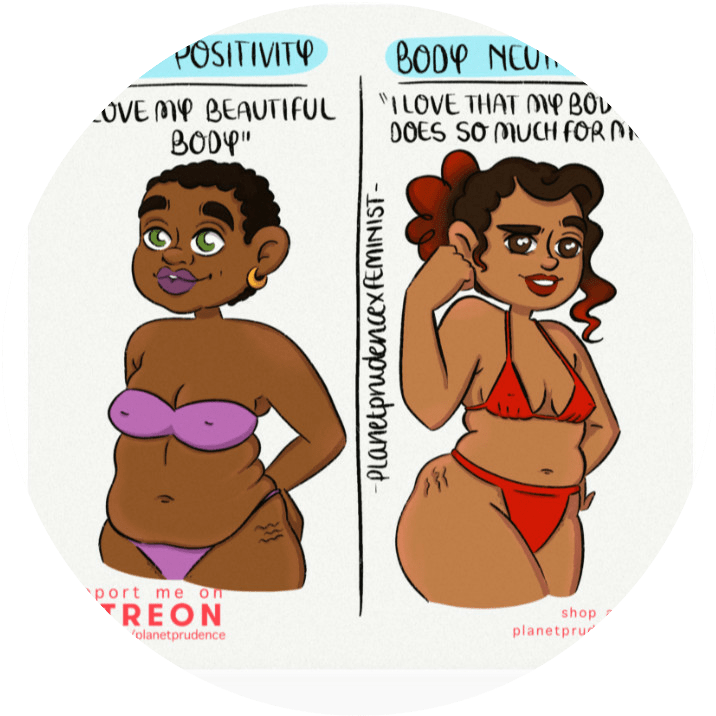
The Impact of Social Media
The media focuses on showing women who are thin, attractive, and young. Images of these women are often airbrushed with computer technology. Who can really look that beauty, right? As a result, girls and young women often try to reach beauty and body ideals that do not exist in the real world.
What Causes Negative Body Image?
Past events and circumstances can cause you to have a negative body image. Triggers include:
- Being teased or bullied as a child for how you look
- Being told you’re ugly, too fat, or too thin.
- Having other aspects of your appearance criticized.
- Seeing images or messages in social media that make you feel bad about how you look
- Being underweight, overweight, or obesity
Body Dysmorphic Disorder
In rare cases, people can have such a distorted view of their bodies that they develop a mental health condition called body dysmorphic disorder (BDD). BDD is a serious illness in which a person is preoccupied with minor or imaginary physical flaws.
How Does Overweight and Obesity Affect Body Image?
Women who have obesity are more likely to have a negative body image. However, not all women who have obesity or overweight are dissatisfied with their bodies. A perfect example is Lizzo. On the other hand, women with a healthy weight can also have a negative body image. But, obesity can make a women’s negative body image more severe. 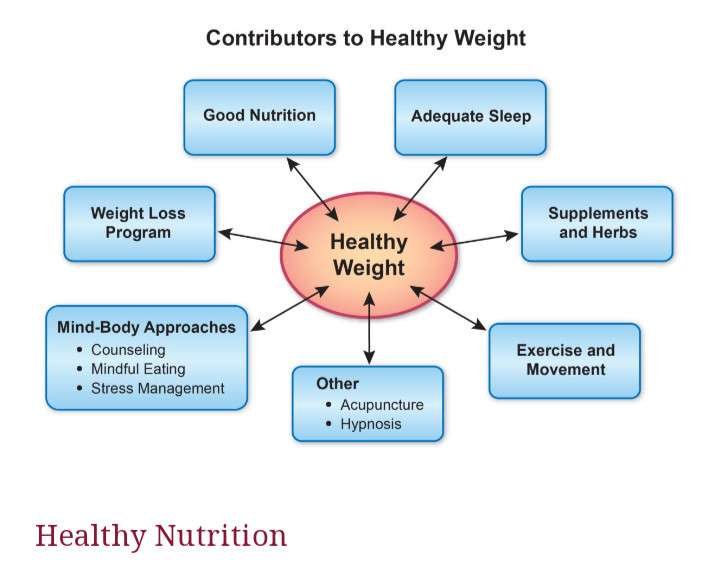
Underweight Have Body Image Issues
People who are underweight due to a health condition like an eating disorder, cancer, or Crohn’s disease, may have a negative body image due to their condition. Plus, women who are underweight, without a health condition also experience negative body image issues.
Other Variables Contribute to Body Image
Weight is not the only variable that determines body image. Self-esteem, history, daily habits (grooming), and the shape of your body all contribute body image. Although weight is an important component of body image, it is not the only part.
The Four Aspects of Body Image
- Perceptual – the way you see yourself
- Affective – the way you feel about the way you look
- Cognitive – thoughts and beliefs you feel about your body
- Behavioral – things you do in relation to the way you look
Social Issues of Body Image
In addition to affecting an individual’s view of self, poor body image also results in social phobias. In fact, it interferes with the development of healthy social and romantic relationships. As a result, the person experiences Body Dysmorphic Disorder (BDD). This is a misconception of one or more of the body areas. Despite all the negative hype and stigma attached to a person’s body image, it does not prevent anyone from having a successful, social media presence.
Teen Body Image of Honey Boo Boo
Teen Alana Thompson, a.k.a. Honey Boo Boo, severely overweight, she has decided to undergo weight loss surgery. Yeah! So, in August (2022) it was confirmed that a non-surgical weight-loss procedure is scheduled. The former “Toddlers and Tiaras” star, now 16, told Entertainment Tonight it would be the “easiest way” to lose weight. On the other hand, her mother, June Shannon, was not as enthused with the idea, initially.
June shared her thoughts saying, “It kind of bothers me that Pumpkin didn’t tell me…If Alana wants to do it, she should wait to sign her own paperwork at 18.” By the way, Pumpkin is the person who has legal guardianship of Alana. June, herself, underwent weight loss surgery in 2017, lost a whopping 300 pounds, but has gained a lot of it back again. However, Alana, June’s biological daughter, is still on the fence.
Earlier this month, Alana spoke to ET and revealed that she’s not 100 percent sure yet if she’ll go through with the $13,000 suture sculpt endoscopic sleeve procedure. She plans to undergo the surgery after her 17th
birthday (August). Reports say that the goal of the surgery is to slim down from 275 down to 150 pounds.
Case Study of How Negative Body Image Develops
A new study (2022) shows that high school girls who have body image misconceptions are more likely to engage in episodes of heavy drinking. Another recent study out of the United Kingdom found interesting results. For example, the study revealed the following data:
- As children grow older, their peers play more of a role in ideal body image and acceptance.
- In the survey, 40% of young people (37% of boys and 42% of girls) agreed that things their friends said caused them to worry about their body image.
- Another survey found that 68% of boys cited friends as a source of pressure to look good.
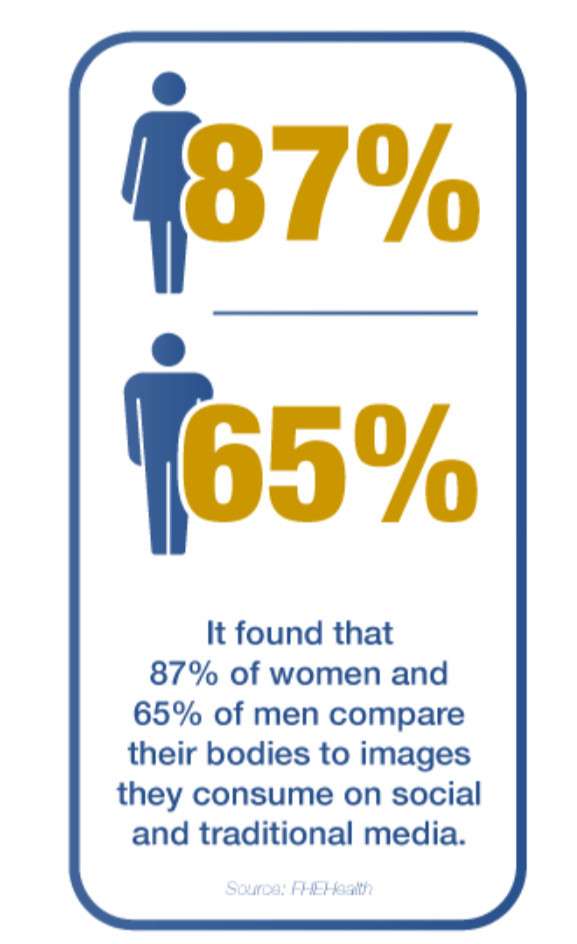
Frequently Asked Questions
Q. What age group is most affected by body image?
A. Teens are more affected because of peer pressure and caring about what their friends think about them. They want to belong and want validation.
Q. Does underweight affect body image?
A. Yes. They may have a negative body image due to an eating disorder, cancer, or Crohn’s disease because of their medical condition.
Q. How can I have a healthy body image?
A. Research shows that your body image improves if you are overweight/obese when you participate in a weight loss program. This helps you focus on healthy eating and exercise first and foremost.
Q. How can I help my kids have a healthy body image?
A. Be a role model. Lead by example. Help your child have a healthy relationship with food. Also, cooks healthy meals and order healthy meals when you dine out. Teach children about smart food choices and help them develop healthy eating and exercise habits. Have discussions about body images, reflections on healthy body images and keep the lines of communication open.
Final Take Home
Thank for joining in for this in-depth discussion about body image. I hope you can apply this knowledge to your own lifestyle and well-being. For more information about body image, call OWH Helpline at
1-800-994-9662 or check out the following resources and organizations:
- “20 Ways to Love Your Body”
- Check out the National Eating Disorders Association (NEDA)
- Fostering a Positive Self-Image – Published by Cleveland Clinic
- Health and Wellness – Planned Parenthood
- Media and Body Image – Published by NEDA
Rachele, Founder
mybluegenes.com (website)
rachele@mybluegenes.com
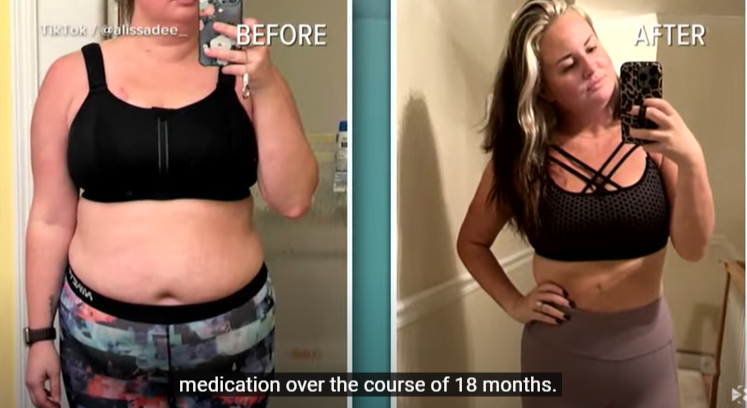
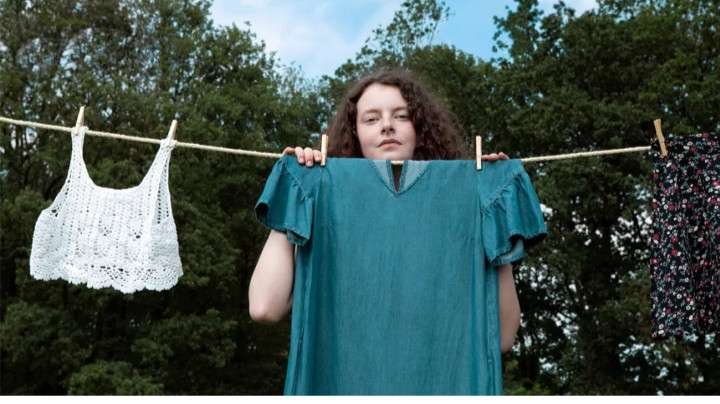
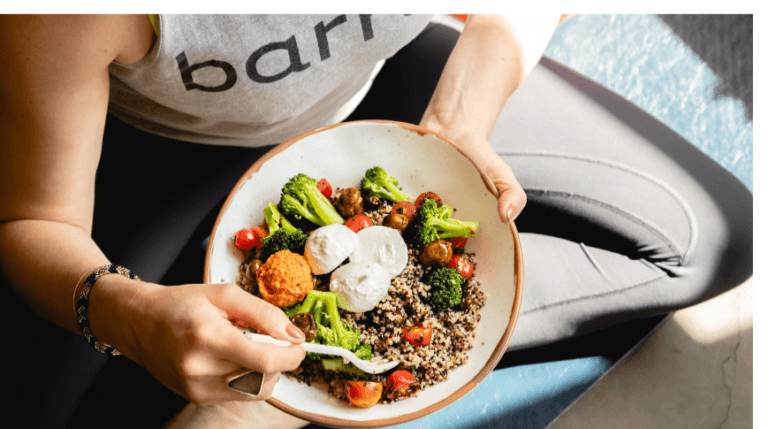
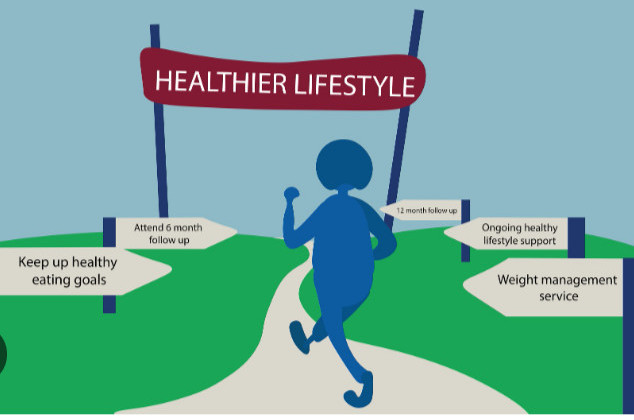

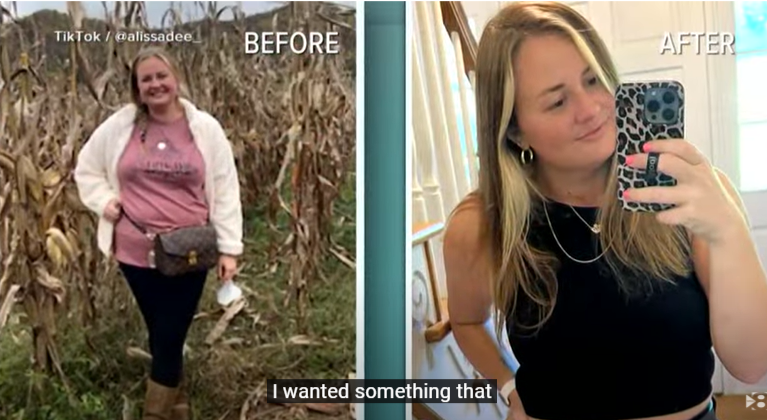

This was a really interesting article about body image and what factors can contribute to a positive or a negative body image. Of course, it is not always obesity or overweight, sometimes quite the contrary. It was great to see that you concluded the article with some resources and organizations that promote healthy body images. Thank you for sharing this important information. Jenni.
Thanks Jenni,
I appreciate your comments related to body image. I certainly agree that it’s not always obesity or overweight. It is oftentimes underweight body image as well.
Rachele
Hi Jenni,
Since we were having dialogue about body image and weight, I thought you might be interested
in seeing science and technology do its thing to help people control their health in the comfort and
convenience of their home. This machine blows me away. It is next level.
==>Check here https://amzn.to/3gpZCvP